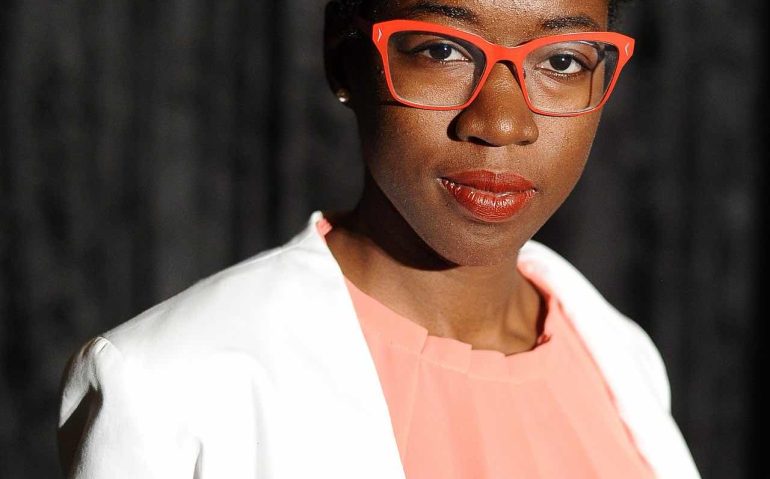In a recent episode of “Last Week Tonight,” host John Oliver highlighted the groundbreaking research of Dr. Joy Buolamwini, emphasizing her pivotal role in uncovering the correlation between artificial intelligence (AI) and bias. Through her tireless efforts, Dr. Buolamwini has brought attention to a significant aspect of AI that demands urgent attention and action.
Dr. Joy Buolamwini, a renowned poet of code, has dedicated herself to illuminating the social implications of AI. Recognizing the exclusion of certain groups from AI training data, she has demonstrated how these biases perpetuate disadvantages, particularly among marginalized communities. For instance, in testing pedestrian tracking for self-driving cars, Dr. Buolamwini’s research revealed that accuracy rates were lower for individuals with darker skin tones compared to those with lighter skin tones.
Her analysis led her to identify a critical factor contributing to bias in AI: the lack of diversity in the data used to train AI systems. Dr. Buolamwini discovered that many of the largest and most influential datasets used in the field were predominantly composed of male and lighter-skinned individuals. Coining the term “pale male data,” she encapsulated the issue in a succinct and memorable manner.
During the “Last Week Tonight” segment, John Oliver playfully acknowledged the humor in the term “pale male data” while recognizing its profound implications. The biased inputs resulting from the homogeneity of AI training data ultimately lead to biased outputs, perpetuating systemic inequalities. This issue resonates across various sectors and underscores the pressing need for change.
Dr. Joy Buolamwini Algorithmic Justice League
Dr. Buolamwini’s impactful work extends beyond her research findings. As the founder of the Algorithmic Justice League, she actively advocates for a more equitable and accountable AI landscape. Her efforts have earned her recognition and opportunities to speak at high-profile events, such as the World Economic Forum and the United Nations. Through her TED Featured Talk, which has amassed over 1 million views, she has successfully conveyed the urgency of addressing algorithmic bias and the importance of algorithmic justice.
Furthermore, Dr. Buolamwini’s creative science communication techniques have effectively raised awareness about AI biases. Her spoken word visual audit titled “AI, Ain’t I A Woman?” and the short film “Coded Gaze” have been exhibited in prestigious venues worldwide, presenting the faces of iconic women like Oprah Winfrey, Michelle Obama, and Serena Williams as victims of AI failures.
The notable accolades bestowed upon Dr. Buolamwini reflect her remarkable contributions to the field. As a Rhodes Scholar and Fulbright Fellow, she has been recognized by prominent publications and organizations. Her inclusion in the Bloomberg 50, Tech Review 35 under 35, BBC 100 Women, Forbes Top 50 Women in Tech (youngest), and Forbes 30 under 30 further solidify her status as a trailblazer in AI research and advocacy.
Dr. Joy Buolamwini’s work serves as a wake-up call, urging the industry to confront bias head-on and implement measures for algorithmic justice. By exposing the critical connection between AI and bias, she has ignited a crucial conversation that demands immediate attention. As society progresses in its reliance on AI technologies, it is imperative that these systems are developed with inclusivity, fairness, and accountability at their core.
Dr. Joy Buolamwini and the real-life implications of AI Bias
FACIAL RECOGNITION TECHNOLOGIES
Dr. Joy Buolamwini’s research on algorithmic bias in facial recognition technologies has exposed troubling flaws in the systems provided by tech giants like IBM, Microsoft, and Amazon. These widely used tools have been found to be racially and gender biased, with alarming consequences. Even the faces of prominent figures such as Oprah Winfrey, Michelle Obama, and Serena Williams were misclassified by these technologies, underscoring the extent of the problem.
The widespread deployment of facial recognition technologies around the world has sparked concerns about mass surveillance and infringement on individual privacy. The potential for abuse and the inherent biases within these systems has raised questions about the ethical implications of relying on AI-powered tools to make critical decisions.
EMPLOYMENT
One notable example of the risks associated with automated assessment tools occurred when an award-winning teacher encountered injustice. The use of an AI-powered assessment tool to evaluate her performance led to flawed judgments and undermined her excellence as an educator. This case highlights the dangers of placing too much trust in artificial intelligence to judge human skills and accomplishments, as the inherent biases within these systems can perpetuate unfair treatment and hinder professional growth.
HOUSING
In a community in Brooklyn, the implementation of facial recognition software by a building management company for tenant access sparked resistance and concerns about privacy and discrimination. The community recognized the potential for abuse and the invasive nature of this technology, leading them to mobilize against its adoption. The incident serves as a reminder that the deployment of AI-powered systems must be approached with careful consideration of the potential consequences and the protection of individuals’ rights.
CRIMINAL JUSTICE
The criminal justice system, already plagued by racial injustices according to Dr. Joy Buolamwini, is facing a new challenge with the rise of biased algorithms used in risk assessment tools. Returning citizens who have worked diligently to reintegrate into society find their efforts undermined by these flawed systems. The risk assessment tools, powered by AI, exacerbate existing biases, disproportionately impacting marginalized communities and perpetuating systemic inequalities. This intersection of biased algorithms and the criminal justice system highlights the urgent need for comprehensive reform to ensure fairness and equity for all individuals affected by these technologies.
Dr. Joy Buolamwini’s work has not only shed light on the biases present in AI systems but has also brought attention to their real-world consequences. As her research continues to make waves and her advocacy efforts gain momentum, it is increasingly evident that addressing algorithmic bias is not just a theoretical concern but a pressing social issue with far-reaching implications. The stories of flawed facial recognition technologies, unjust employment assessments, housing disputes, and biased criminal justice tools underscore the critical need for algorithmic justice and the imperative of creating systems that are transparent, accountable, and fair for all.
Image: Joy Buolamwini at Wikimania 2018 in Cape Town, South Africa. Joy Buolamwini – Wikimania https://commons.wikimedia.org/wiki/User:Jaqen







